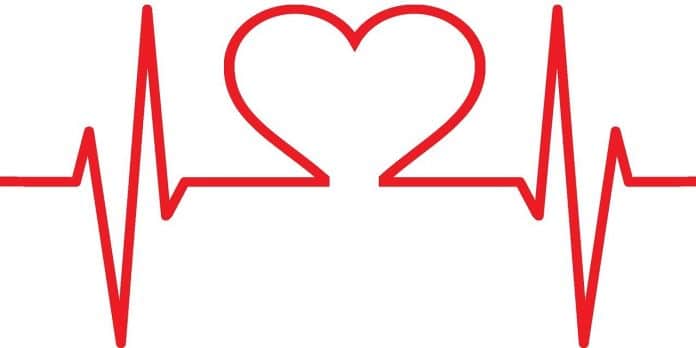Every year we celebrate February as the American Heart Month. The reason is to raise awareness about preventing heart disease. In other words learn everything you can to keep your heart healthy and prevent those heart attacks and strokes too.
Yes, we are going through a health crisis now from the COVID-19 pandemic, a major cause of death in 2020. But with the vaccination rate going up and people observing precautions, this pandemic will also be a thing of the past. But we cannot forget the other pandemic, ‘heart disease,’ that has been the number one killer of Americans for the past many years. According to American Heart Association, “Cardiovascular disease (CVD – heart attacks and strokes)” remains the leading cause of death in the United States. About 655,000 Americans die from heart disease each year—that means one person dies every 48 seconds from CVD!
So, what can we do about it? Since none of us can escape the consequences of aging with its attendant risk for chronic diseases and loss of body functions, it seems reasonable to develop strategies to prevent or delay the onslaught of these problems. It’s often said that “the best medicine we’re not using is actually ‘Lifestyle Intervention.’ ” So now it’s up to us to pay proper attention to the deficiencies in our lifestyle. American Heart Association has set out seven ideal health metrics that we need to follow to achieve the best health. These are called “Life’s simple 7” and include the following.
1. Healthy diet: Our diet primarily consists of a lot of carbs with heavy reliance on refined sugar and sweets along with processed foods and meats containing saturated fats, all laden with a lot of salt. This is a standing invitation for major diseases. A common sense approach consisting of whole grains and wheat products along with a lot of colored vegetables, fruits and nuts of all kinds and going easy on sugar and salt should dominate your daily diet—in other words primarily a plant based diet. Fish that contains a lot of omega three fatty acids is good for the body. For those hard core non-vegetarians you can indulge in meats and meat products to a small extent – “Everything in moderation” as your grandma would say.
2. Physical activity: “Regular exercise is the best medicine that can help you to decrease or prevent some of the chronic diseases like hypertension, diabetes, heart attacks and high cholesterol,” says Harvard Health News. Unfortunately most of us are exercise averse, preferring to sit in front of TV or computers or pursue other sedentary activities. So, be physically active as much as possible, doing whatever exercises you like and likely to stick with on a long term basis. Moderate-intensity activity of ≥150 min/week or vigorous-intensity activity of ≥75 min/week or combination of these two is what American Heart Association recommends. Try to include Yoga and other forms of flexibility training if you can.
3. Blood Pressure (BP) control: The ideal BP for an adult should be <120/ <80. A systolic BP of 120-139 mm Hg and/or diastolic BP of 80-89 is thought to be prehypertension while a SBP ≥140 mmHg and/or DBP ≥90 mmHg is definite hypertension that can increase your risk for cardiovascular events. So keep it as close to normal as possible and discuss with your doctor. Shake the salt habit, exercise regularly, watch your weight and sleep at least seven hours at night.
4. Maintain Normal Cholesterol: Every high risk person should be aware of the fundamentals of ‘hyperlipidemia’ and optimal lipid lowering therapy. While the general recommendation is to keep your total cholesterol <200 and LDL (Low Density Lipoprotein or bad cholesterol) <100, for people with high risk both these parameters should be much lower to the extent that the very high risk patients (like those who already had a cardiac event) should keep their LDL as low as possible, preferably <55!
5. Prevent, delay or control diabetes. Diabetes is now widely prevalent all over the world and may be one of the major causes of mortality. You already know that with proper diet (especially reducing the carbs like the high glycemic sugar, sweets, white rice etc.) and regular exercise, one may be able to prevent or at least delay the onset of diabetes. Once diagnosed, take active steps to control it well. Keep these figures for fasting blood sugars (mg/dL) in mind: Normal < 100, Pre-Diabetes 100 – 125, Diabetes >125.
6. Healthy weight: Obesity and overweight have become all too common and the perils of obesity like high BP, diabetes, heart disease and cancer, the most serious of them, are well known to you. Here is the run down on the numbers on the Body Mass Index (BMI – kg/m2): Normal <25, Overweight 25-29.9, Obesity >30.
7. No smoking: Tobacco use in any form is detrimental to the body, so stop it if you are already a user and don’t start if you are not one. Cardiologists and cancer specialists believe that if we can put an end to cigarette smoking in this country nearly 50% of the cancer and heart attacks could be prevented. Think about that for a moment.
Needless to say, use alcohol only in moderation and stay away from substance abuse. Also, keep your stress levels down; daily meditation is helpful for this. Take a new life resolution to follow these 7 simple measures and build a healthy, happy and long life for you and your loved ones.

